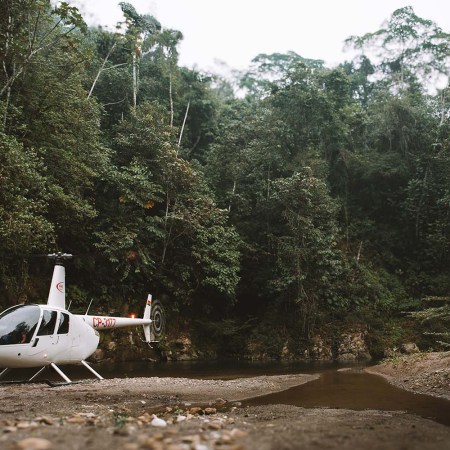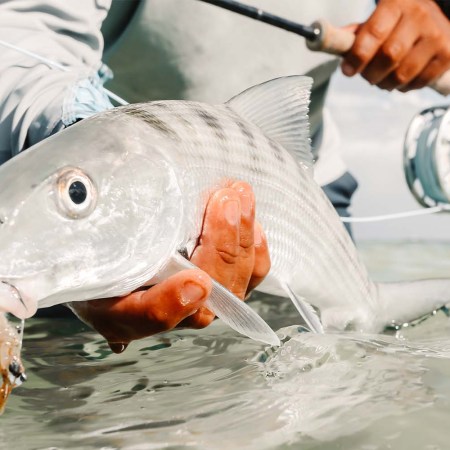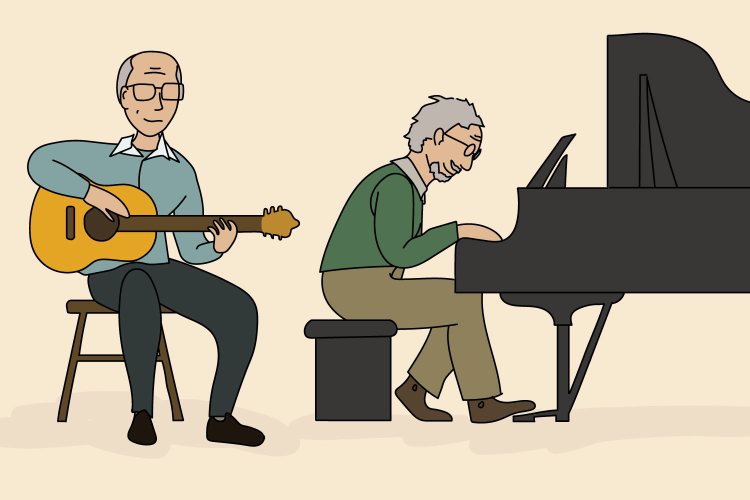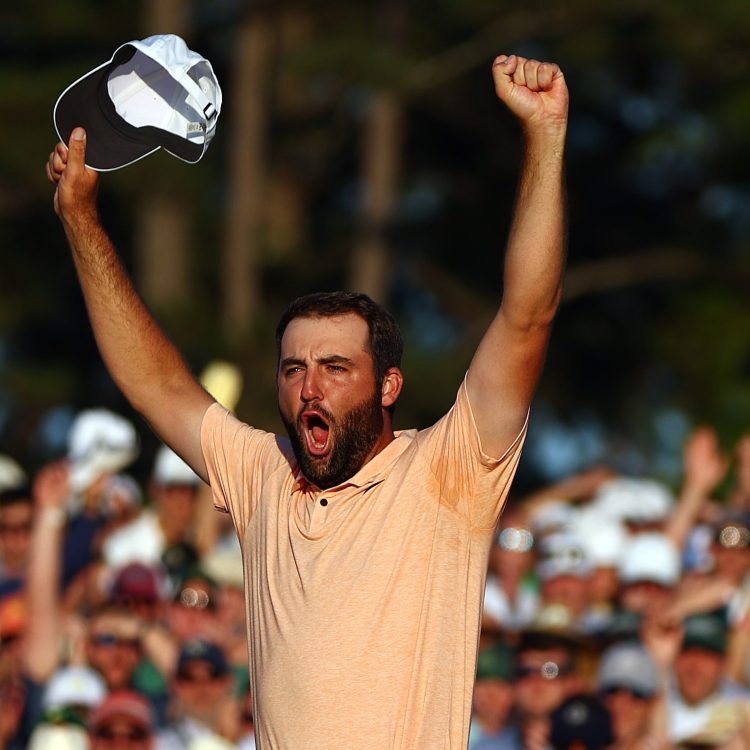As he enters his mid seventies, Henry Winkler is experiencing an impressive late-career renaissance. Last year, he won his first ever Emmy Award for his supporting role as acting coach Gene Cousineau on Barry, the acclaimed HBO show. Alien Superstar, the latest in a series of best-selling children’s books Winkler has written with a co-author, Lin Oliver, was published in early October by Amulet. And he is set to appear in Wes Anderson’s highly anticipated forthcoming film, The French Dispatch, the release date of which is yet to be disclosed.
All of these accomplishments suggest Winkler has achieved a level of confidence that seems to have been lacking in his professional life since Happy Days, the TV show in which he starred as hip greaser Arthur “The Fonz” Fonzarelli, ended its decade-long run 35 years ago. What accounts for his recent success? He chalks it up, in large part, to an unlikely pastime: fly fishing.
“It is the greatest metaphor for life,” Winkler told InsideHook in a recent phone conversation from his home in Los Angeles. “You have got to take a risk and try and get your fly in the most inaccessible water. You have to take a risk of losing the fly if you want to get something on it. You have got to be very patient, and once you get the fish on, you have to stay calm.”
Winkler, who turned 74 recently, isn’t the kind of person you’d necessarily associate with a sport like fly fishing — or any outdoor activity, for that matter (aside perhaps from water skiing). He was raised on Manhattan’s Upper West Side and didn’t seize many opportunities to commune with nature as a kid, despite having spent time with his family at a summer home on Lake Mahopac.
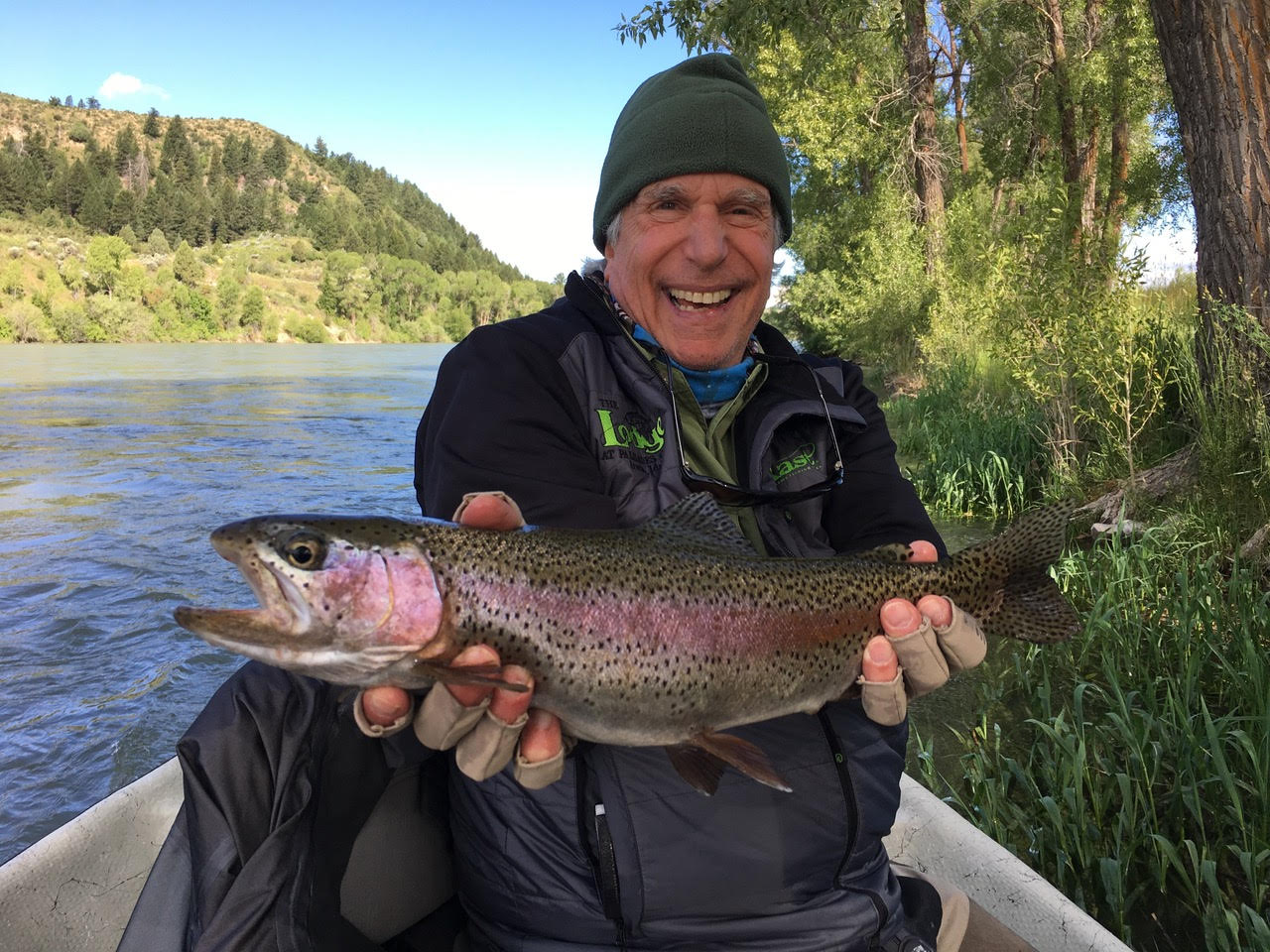
But over the past few decades, he has become a devoted angler, regularly jetting off to isolated rivers in Idaho and Montana in search of trout, the only fish he likes to catch — and release. “I didn’t know when I was younger how much I was going to love the river,” he says.
Fly fishing centers him, so much so that the lessons he has learned from the activity have become a way of being. A good fly fisherman, Winkler points out, is calm and never rushes. “That is one of the things I learned and then applied to my life,” he says. “You cannot force the situation.”
“The line is so thin between your fly and that fish that if you try to horse the fish it will break off,” he adds. “You have to be very patient and you have to play the fish. You have to gently move it from side to side. You gently have to keep it coming toward your boat. You have to feel the slightest tug and let the fish go, because sometimes the fish is very big and has a terrific fight.”
Winkler came upon the sport by chance in the early ’90s, when his lawyer, Skip Brittenham, invited him on a fishing trip to Montana’s Smith River. It was Winkler’s first time fishing, and he was intimidated. “I always thought it was so beautiful, but I didn’t think I could do it because I am so dyslexic,” admits Winkler, who struggled with undiagnosed dyslexia until the age of 31, when he was finally able to read his first book.
But there was something about fly fishing that appealed to him on an almost metaphysical level. “The place that we were in, the sound of where we were, the beauty of where we were — all of that was astounding to me,” he says, likening the activity to a “washing machine for your brain.”
“It’s one of the great things that you can do on the Earth,” Winkler declares. “I mean, you literally cannot worry about anything that is bothering you because you have to totally stay in the moment or the fish will break off.”
These days, Winkler tries to go fishing at least once annually. He and his wife of 41 years, Stacey, fish on separate boats because Winkler is so serious when it comes to hooking trout. They’ve just found it works better when they fish independently of one another; their current haunt is a ranch called the Lodge at Palisades Creek on the Snake River in Irwin, Idaho.
Winkler is practiced in both fly and nymph fishing, a technique in which you present the fly underwater because the river is too rough and the fly can’t be cast right onto its surface. He uses a Winston fly rod manufactured by the R. L. Winston Rod Company, which is based in Montana and owned by David Ondaatje, nephew of the novelist Michael Ondaatje, whose books include The English Patient.
“The rod is built with such precision that it does a lot of the work for you,” Winkler says. “It’s like a dance. When you lift your line out of the water you let it load behind you and then you swoosh it forward, stopping at 2 o’clock so it can land like a feather on the water and look delicious.”
Winkler caught the biggest trout of his angling life this past summer in Wyoming — 12 pounds and 26 inches long. “It was thrilling,” he says. Despite such a haul, Winkler worries about the fate of his beloved trout as climate change threatens to upend fishing habitats around the world. On a good day, he says he might catch 30 trout, but years ago, that number was in the seventies.
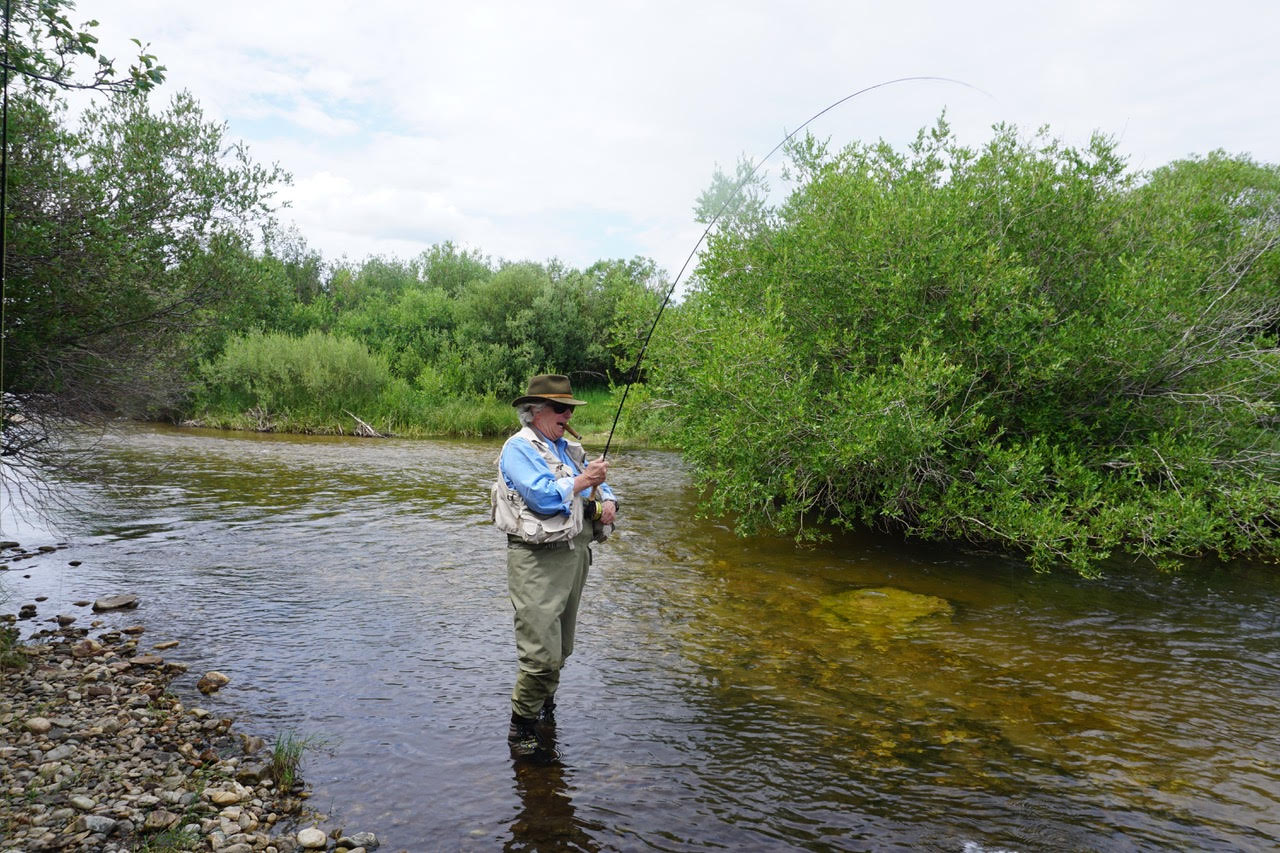
Winkler respects the fish so deeply that he won’t even eat it, though he does indulge in other types of fish. “I absolutely don’t order trout in a restaurant, and I have never taken one out of the river,” Winkler says. “They are beautiful, and I think they are majestic, and they are there next year when I want to go again and spend time with old friends.”
For Winkler, the long view has paid off, both in his personal and his professional life. As he prepares to shoot the third season of Barry in March, he is also looking forward to an upcoming fishing trip in Idaho. “Unfortunately,” he says, it will only be for six days. But he hopes that the sojourn will afford him enough time to focus on what matters most in his life.
“I’m getting to be, at 74, the actor that I imagined when I was training, when I was 27 and I got the Fonz,” Winkler says. “I knew what I wanted to be as an actor, but I hadn’t gotten there yet — and that had to do with the patience of just being, listening, looking, being aware of where you are, and staying on task.”
This article was featured in the InsideHook newsletter. Sign up now.

